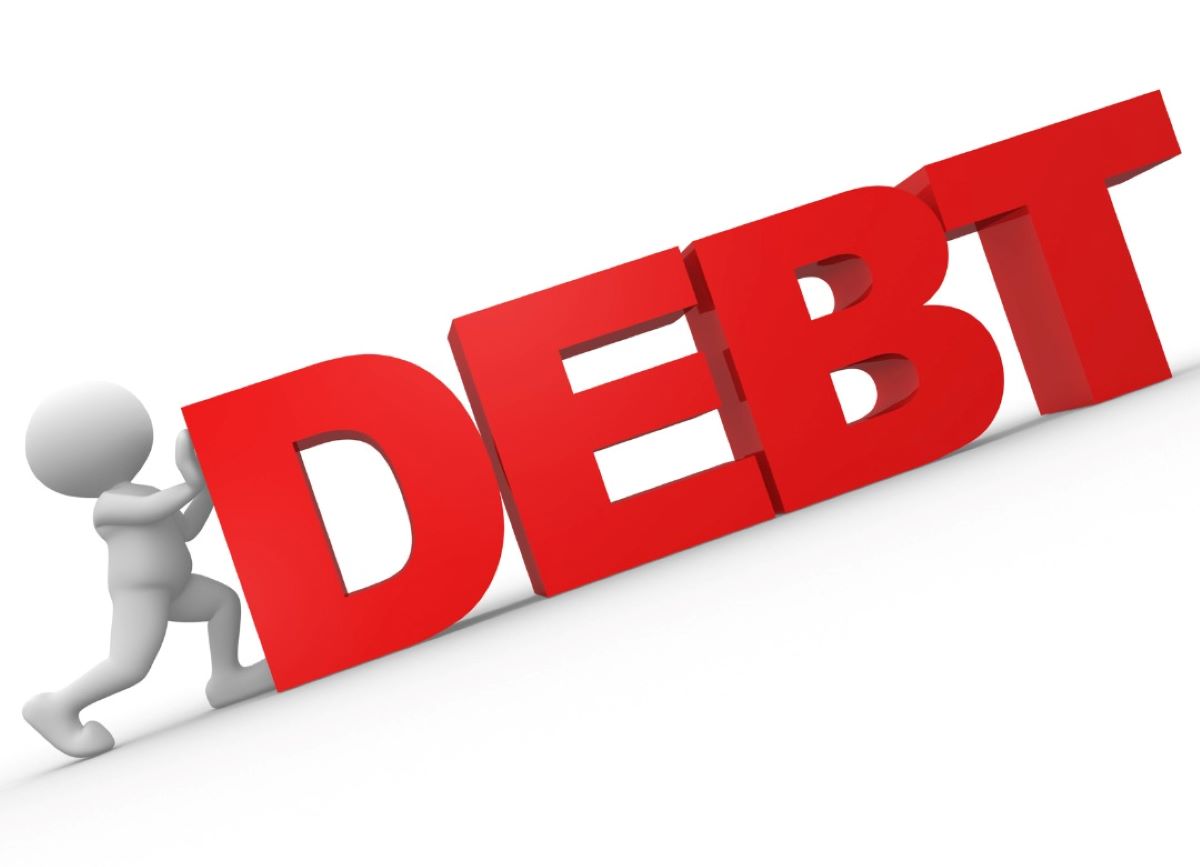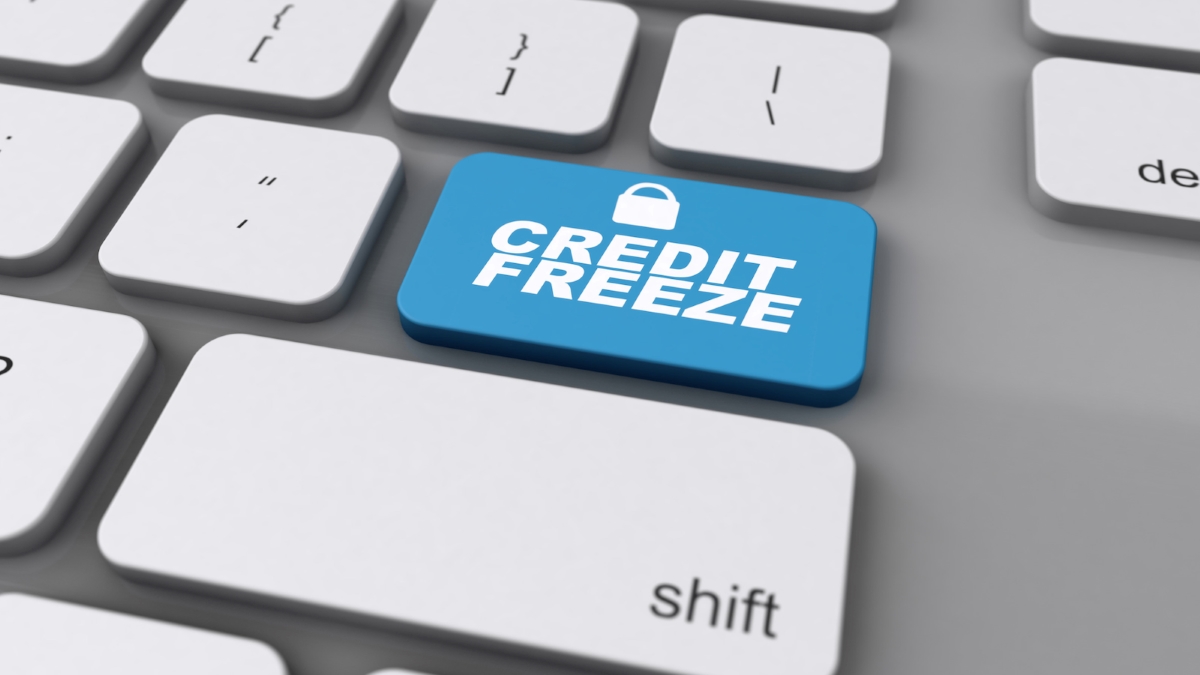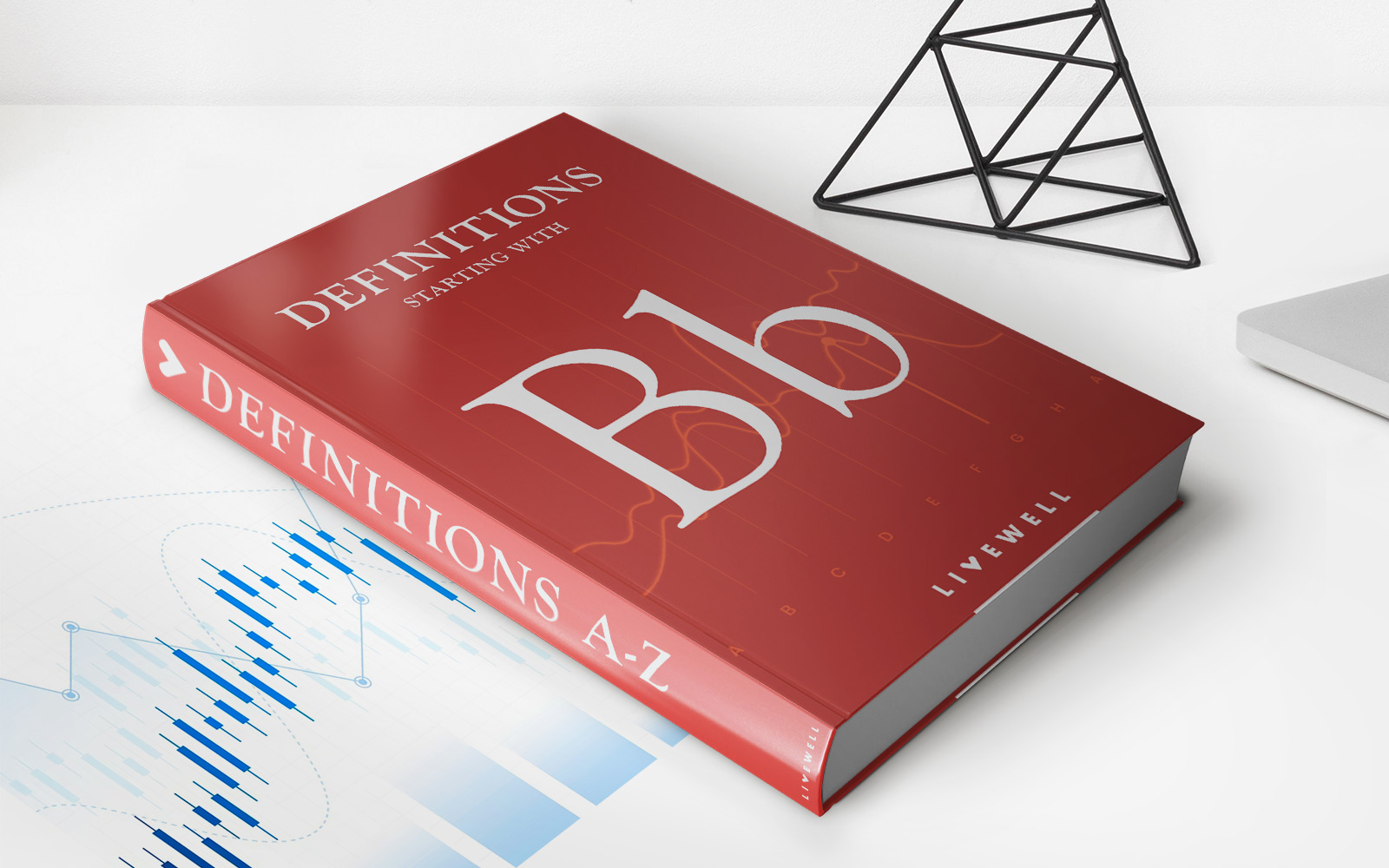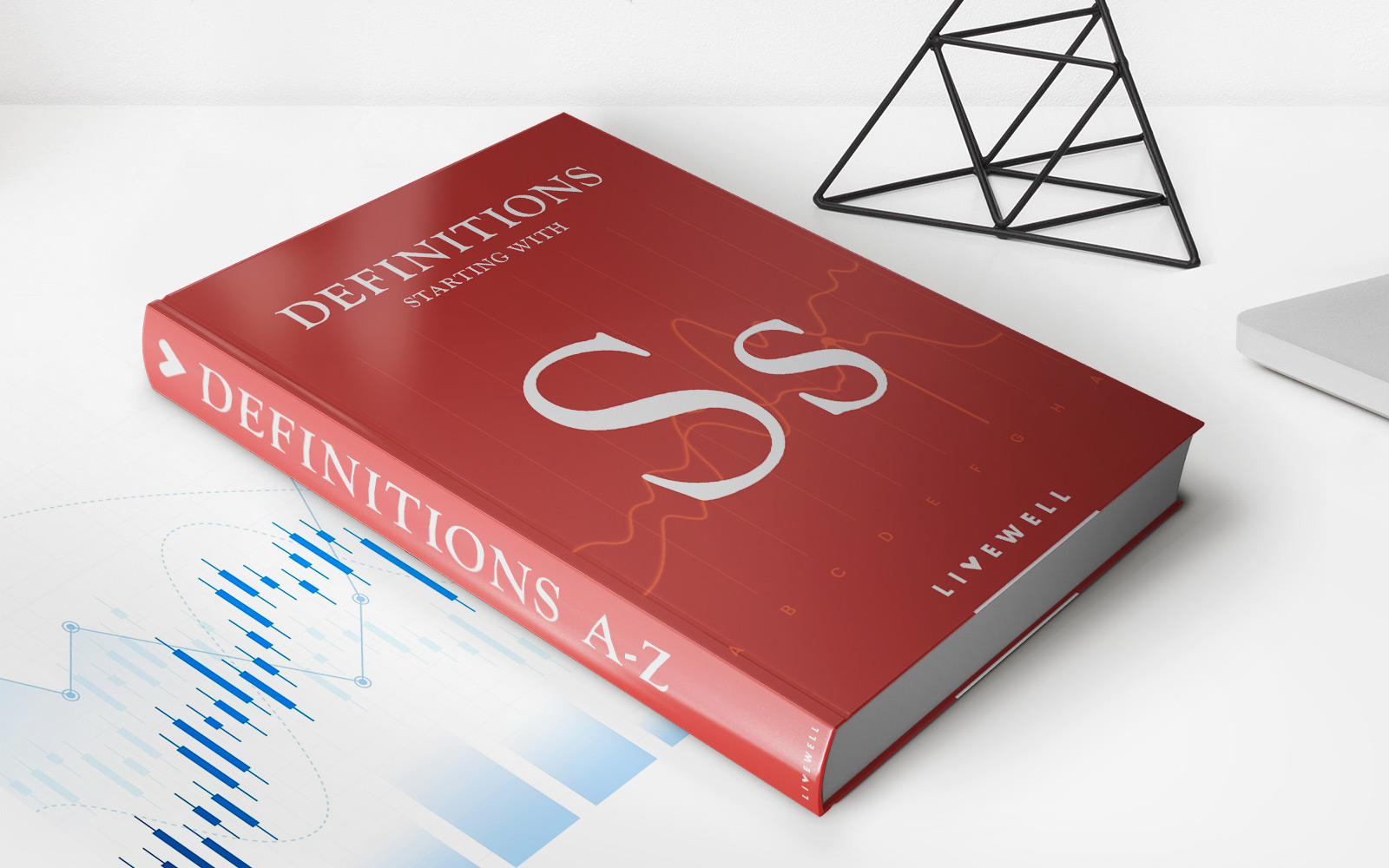Home>Finance>What Will Happen To Your Credit Score If You Do Not Manage Your Debt Wisely?


Finance
What Will Happen To Your Credit Score If You Do Not Manage Your Debt Wisely?
Modified: March 6, 2024
Not managing your debt wisely can have serious consequences for your credit score. Discover how to maintain a healthy credit rating and avoid financial pitfalls.
(Many of the links in this article redirect to a specific reviewed product. Your purchase of these products through affiliate links helps to generate commission for LiveWell, at no extra cost. Learn more)
Table of Contents
Introduction
Managing debt is a crucial aspect of financial well-being, and it directly impacts various aspects of your financial life. One such aspect is your credit score, a numerical representation of your creditworthiness. Your credit score plays a significant role when applying for loans, obtaining credit cards, or even renting an apartment. It is a metric that lenders use to assess the risk of lending to you.
Understanding how debt management affects your credit score is essential for maintaining a healthy financial profile. Failing to manage your debt wisely can have severe consequences and adversely impact your credit score.
In this article, we will explore the relationship between debt management and credit scores. We will delve into the negative consequences of not managing your debt properly and provide valuable insights on maintaining a good credit score.
Whether you are struggling with debt or want to ensure you are managing your financial obligations effectively, this article will help you navigate the world of credit scores and debt management.
Understanding Credit Scores
Credit scores are three-digit numbers that lenders use to evaluate an individual’s creditworthiness. They are based on various factors, including payment history, credit utilization, length of credit history, types of credit used, and new credit inquiries.
The most commonly used credit scoring model is the FICO score, which ranges from 300 to 850. A higher credit score indicates a lower credit risk and increases the likelihood of being approved for loans with favorable terms.
Understanding how credit scores are calculated can help you gauge the impact of your debt management on your overall creditworthiness. While the specific algorithms used by credit bureaus to calculate credit scores may vary, the general factors involved include:
- Payment History: Your payment history, including the timeliness of your payments and any instances of missed or late payments, has a significant impact on your credit score. Consistently making on-time payments helps build a positive credit history.
- Credit Utilization: The ratio of your credit card balances to your credit limits, known as credit utilization, plays a crucial role in determining your credit score. A high credit utilization ratio can indicate a higher risk and lower your credit score. It is recommended to keep your utilization below 30%.
- Length of Credit History: The length of time you have been using credit is also a factor in credit scoring. A longer credit history demonstrates stability and responsible credit usage.
- Types of Credit Used: Lenders like to see a mix of different types of credit accounts, such as credit cards, mortgages, and installment loans. Having a diverse credit portfolio can positively impact your credit score.
- New Credit Inquiries: When you apply for new credit, such as a loan or credit card, it triggers a hard inquiry on your credit report. Multiple hard inquiries within a short period can negatively affect your credit score. It is crucial to be mindful of the number of credit applications you make.
By understanding these aspects of credit scoring, you can take proactive steps to manage your debt wisely and improve your creditworthiness over time. The next section will delve into the importance of managing debt effectively and how it impacts your credit score.
The Importance of Managing Debt
Effective debt management is crucial for maintaining a healthy financial profile and achieving long-term financial goals. It not only helps in keeping your credit score intact but also ensures your overall financial well-being. Here are some reasons why managing debt is important:
- Preserving Creditworthiness: Managing debt responsibly is key to preserving your creditworthiness. A good credit score opens up opportunities for favorable interest rates on loans, credit card approvals, and other financial benefits. On the other hand, poor debt management can lead to a lower credit score, which can limit your access to credit and result in higher interest rates.
- Reducing Financial Stress: Debt can cause significant stress if not managed properly. By creating a budget, prioritizing debt payments, and developing a strategy to pay off debts, you can alleviate financial stress and regain control of your finances. Effective debt management allows you to focus on your financial goals and achieve financial freedom.
- Saving Money: Managing debt goes hand in hand with saving money. By effectively managing your debts, you can avoid unnecessary interest charges and fees associated with late payments or high credit card balances. The money saved on interest and fees can be directed towards savings or investments, helping you build a secure financial future.
- Building a Positive Financial Reputation: Responsible debt management helps build a positive financial reputation. Lenders and financial institutions are more likely to trust individuals who have a track record of managing their debts effectively. This can lead to better borrowing opportunities and more favorable financial terms in the future.
- Setting a Good Example: By managing debt responsibly, you set a good example for your family and future generations. Teaching younger family members about the importance of financial responsibility and proper debt management can have a lasting impact on their financial habits.
Overall, managing debt is not just about paying off your debts. It involves careful planning, budgeting, and disciplined financial habits. By prioritizing debt management, you can achieve financial stability, improve your credit score, and work towards your long-term financial goals.
Negative Impact on Credit Score
Failure to manage your debt wisely can have severe consequences and negatively impact your credit score. Here are some of the ways in which poor debt management can harm your creditworthiness:
- Late Payments: One of the most significant factors in determining your credit score is your payment history. Making late payments or missing payments altogether can have a substantial negative impact on your credit score. It demonstrates a lack of responsibility and reliability in repaying debts.
- High Credit Card Balances: Carrying high credit card balances, especially close to your credit limit, can negatively impact your credit score. It indicates a higher risk of defaulting on payments and can lower your creditworthiness in the eyes of lenders.
- Debt Collections: If you fail to make payments on your debts for an extended period, the creditor may send your account to a debt collection agency. Having debts in collections can significantly damage your credit score and remain on your credit report for up to seven years.
- Bankruptcy: If you find yourself overwhelmed by debt and unable to repay it, declaring bankruptcy may seem like the only option. However, bankruptcy has severe consequences on your credit score and can stay on your credit report for up to ten years. It can make it challenging to qualify for loans or credit in the future.
- Credit Inquiries: Applying for multiple credit cards or loans within a short period can result in multiple hard inquiries on your credit report. Too many inquiries can negatively impact your credit score, as it suggests a higher level of credit risk.
It’s important to understand that negative information on your credit report can stay for several years and continue to impact your creditworthiness. This is why it is crucial to take steps to manage your debt effectively and minimize any potential negative consequences.
Next, we’ll explore specific debt management practices that can help you maintain a healthy credit score and improve your overall financial well-being.
Late Payments and Credit Score
Late payments can have a significant negative impact on your credit score. Payment history is one of the most crucial factors in determining your creditworthiness, accounting for about 35% of your FICO score.
When you make a late payment on a credit card or loan, it gets reported to the credit bureaus. Generally, payments that are more than 30 days late are reported as delinquent. The longer the payment is overdue, the more severe the impact on your credit score.
Even a single late payment can cause your credit score to drop, depending on your overall credit history. Multiple late payments can further damage your credit score and make it harder to rebuild your creditworthiness.
It is important to note that the severity of late payments on your credit score can depend on several factors:
- Frequency of Late Payments: Consistently making late payments can have a more detrimental impact on your credit score than occasional or isolated late payments.
- How Recent the Late Payments Were: Recent late payments can have a more significant negative impact on your credit score compared to older late payments.
- Severity of Late Payments: The length of time a payment is overdue and the amount of the payment can also affect the severity of its impact on your credit score.
To minimize the negative impact of late payments on your credit score, here are some strategies to consider:
- Stay Organized: Set up reminders for bill payments to ensure you never miss a due date. Consider setting up automatic payments or using financial apps that send you notifications.
- Financial Planning: Create a budget to ensure you have sufficient funds to cover your monthly payments. Prioritize your debts and make timely payments accordingly.
- Communication with Creditors: If you anticipate difficulty making a payment, consider reaching out to your creditor before the due date. They may be willing to work out a payment plan or offer temporary relief.
- Establish a Buffer: Create an emergency fund or maintain a separate savings account to cover unexpected expenses or financial hardships that may impact your ability to make timely payments.
Remember that late payments can have long-term consequences on your creditworthiness. By making a conscious effort to pay your bills on time, you can preserve your credit score and maintain a positive financial profile.
High Credit Card Balances and Credit Score
High credit card balances can have a negative impact on your credit score, primarily through the utilization ratio – the ratio of your credit card balances to your credit limits. Credit utilization accounts for approximately 30% of your FICO score and is an essential factor to consider in managing your credit card debt.
When your credit card balances are high, it can indicate a higher credit risk to lenders. It suggests that you may be relying too heavily on credit and might have difficulty repaying your debts. This can result in a lower credit score and potentially affect your ability to access credit in the future.
While there is no specific threshold for an ideal credit utilization ratio, it is generally recommended to keep your utilization below 30% of your available credit. For example, if you have a credit limit of $10,000, it is advisable to keep your outstanding balance below $3,000.
Here are some reasons why high credit card balances can harm your credit score:
- Increased Credit Utilization: As your credit card balances increase, your credit utilization ratio rises. A high credit utilization ratio can indicate a higher risk of defaulting on payments and can negatively impact your credit score.
- Potential Higher Interest Charges: Carrying high balances on your credit cards can result in increased interest charges. Not only does this increase the cost of your debt, but it may also make it more challenging to pay off the balance, leading to a cycle of debt accumulation.
- Lower Available Credit: High credit card balances can limit your available credit, which can impact your financial flexibility and ability to handle emergencies or unexpected expenses.
To effectively manage your credit card balances and mitigate their negative impact on your credit score, consider the following strategies:
- Pay More than the Minimum Payment: Aim to pay off more than the minimum payment each month to reduce your outstanding balance faster.
- Create a Repayment Plan: Develop a plan to systematically pay down your credit card debts, prioritizing those with the highest interest rates.
- Avoid Maxing Out Your Credit Cards: Maxing out your credit cards not only increases your credit utilization ratio but also leaves you with no available credit for emergencies.
- Consider Balance Transfers: If you have high-interest credit card debt, you may explore transferring the balances to a card with a lower interest rate. This can help save on interest charges and make it easier to pay off the debt.
- Limit New Credit Card Applications: Applying for multiple credit cards within a short period can result in multiple hard inquiries on your credit report, potentially lowering your credit score. Be mindful of the impact on your credit when considering new credit cards.
By managing your credit card balances responsibly and keeping your credit utilization low, you can improve your credit score and maintain a healthier financial situation.
Debt Collections and Credit Score
If you fail to make payments on your debts for an extended period, your creditors may send your account to a debt collection agency. When debts are in collections, it can have a significant negative impact on your credit score and overall creditworthiness.
When a debt goes into collections, it means that the original creditor has essentially given up on collecting the debt and has handed it over to a third-party collections agency. The collections agency will then attempt to collect the debt from you.
Having debts in collections can harm your credit score in several ways:
- Negative Item on Your Credit Report: Once a debt is in collections, it will be reported to the credit bureaus, resulting in a negative item on your credit report. This negative item can remain on your credit report for up to seven years.
- Credit Score Impact: The presence of a debt in collections can significantly lower your credit score. The exact impact will depend on various factors, including the amount of debt, the overall history of your credit, and other factors affecting your creditworthiness.
- Difficulty Obtaining Credit: Having debts in collections can make it challenging to obtain new credit in the future. Lenders may view you as a higher credit risk, making them hesitant to approve your applications or offering less favorable terms.
If you find yourself with debts in collections, here are a few steps you can take to minimize the impact on your credit score:
- Verify the Debt: Request a debt validation letter from the collections agency to ensure that the debt is valid and accurate. Mistakes can occur, and you want to make sure you are responsible only for debts you legitimately owe.
- Settle or Negotiate: Reach out to the collections agency and try to negotiate a payment plan or a settlement offer. Aim to pay off the debt or negotiate a reduced amount in exchange for a clear indication on your credit report.
- Keep Other Accounts Current: Continue making payments on your other credit accounts to demonstrate responsible credit management. Maintaining a record of on-time payments can help offset the negative impact of debts in collections.
- Monitor Your Credit: Regularly check your credit report for accuracy, and dispute any incorrect or outdated information. Keeping an eye on your credit allows you to take action promptly and prevent further damage.
While having debts in collections can be challenging, it is not the end of your financial journey. Taking proactive steps to address the debt and work towards improving your credit can help you rebuild your creditworthiness over time.
Bankruptcy and Credit Score
Bankruptcy is a legal process that provides individuals or businesses overwhelmed by debt with a fresh start by eliminating or restructuring their debts. Although bankruptcy can offer relief from overwhelming financial burdens, it has significant consequences on your credit score and overall creditworthiness.
When you file for bankruptcy, it is noted on your credit report and can remain there for up to ten years, depending on the type of bankruptcy filed. This negative item on your credit report can have a detrimental effect on your credit score and make it difficult to obtain credit in the future.
Bankruptcy impacts your credit score in several ways:
- Significant Drop in Credit Score: Filing for bankruptcy typically results in a substantial decrease in your credit score. The exact impact depends on various factors such as your pre-bankruptcy credit score, the type of bankruptcy filed, and your overall credit history.
- Difficulty in Obtaining Credit: Bankruptcy can make it challenging to secure new credit immediately after filing. Lenders may view you as a higher credit risk and be hesitant to approve new credit applications. If you are approved, you may face higher interest rates or less favorable terms.
- Limited Credit Options: While bankruptcy is a way to discharge or restructure your debts, it often means you will have limited credit options available. You may have to start rebuilding your credit with secured credit cards or smaller loans designed for individuals with lower credit scores.
It’s important to note that the impact of bankruptcy on your credit score and ability to obtain credit diminishes over time. As you demonstrate responsible financial behavior and rebuild your credit history, lenders will become more willing to extend credit to you.
Here are a few steps you can take to start rebuilding your credit after bankruptcy:
- Create a Budget: Develop a budget to manage your finances effectively and ensure you have a plan for repaying any remaining debts or meeting your financial obligations.
- Establish an Emergency Fund: Building an emergency fund can help you avoid relying on credit for unexpected expenses, demonstrating to lenders your ability to manage your finances responsibly.
- Obtain New Credit: Consider obtaining a secured credit card or a credit-builder loan to begin rebuilding your credit history. Make payments on time and keep your credit utilization low to gradually improve your credit score over time.
- Monitor Your Credit: Regularly monitor your credit report to ensure its accuracy and to track your progress in rebuilding your credit. Dispute any errors or inaccuracies promptly.
- Practice Responsible Financial Habits: Demonstrate responsible financial behavior by making payments on time, paying off balances in full, and avoiding excessive debt. These habits will help you rebuild your creditworthiness and regain the trust of lenders.
While bankruptcy can have a significant impact on your credit score, it is not the end of your financial journey. By taking proactive steps to rebuild your credit and manage your finances responsibly, you can gradually improve your creditworthiness over time.
Tips for Managing Debt Wisely
Managing debt wisely is essential for maintaining a healthy financial life and optimizing your credit score. Here are some tips to help you effectively manage your debt:
- Create a Budget: Develop a budget that outlines your income, expenses, and debt obligations. This will help you prioritize your spending, allocate funds towards debt repayment, and avoid unnecessary expenses.
- Track Your Expenses: Keep a record of your monthly expenditures to gain a clear understanding of where your money is going. This will allow you to identify areas where you can cut back and redirect funds towards debt repayment.
- Pay More than the Minimum: Whenever possible, strive to pay more than the minimum payment on your debts. Making only the minimum payment can prolong the time it takes to pay off the debt and increase the amount of interest paid over time.
- Prioritize High-Interest Debts: Focus on tackling high-interest debts first. By paying off debts with higher interest rates, you save money in the long run and accelerate your path to debt freedom.
- Consolidate or Refinance Debt: Explore options to consolidate multiple debts into a single loan or refinance high-interest debts for more favorable terms. This can help simplify your debt management and potentially reduce interest expenses.
- Negotiate with Creditors: If you are struggling with debt, reach out to your creditors to discuss possible repayment arrangements. They may be willing to negotiate lower interest rates, waive fees, or offer a more manageable repayment plan.
- Avoid Taking on New Debt: While managing existing debts, try to avoid taking on new debt unless absolutely necessary. Focus on paying off existing obligations before considering new credit.
- Build an Emergency Fund: Establish an emergency fund to cover unexpected expenses. Having a financial safety net can prevent you from relying on credit cards or loans in times of crisis.
- Seek Professional Help if Needed: If you find managing your debt overwhelming or if you feel like you’re drowning in financial obligations, consider consulting a reputable credit counseling agency or a financial advisor for guidance and support.
- Monitor Your Credit Regularly: Keep a close eye on your credit reports and scores to ensure accuracy and detect any signs of potential identity theft. Monitoring your credit allows you to identify and address issues promptly.
By implementing these strategies and adopting responsible financial habits, you can take control of your debt, improve your credit score, and achieve your long-term financial goals.
Conclusion
Managing debt wisely is essential for maintaining a healthy financial life and protecting your credit score. Your credit score plays a critical role in various aspects of your financial well-being, from accessing loans and credit cards to securing favorable interest rates and terms.
Throughout this article, we explored the relationship between debt management and credit scores. We discussed the negative consequences of not managing debt properly, including the impact of late payments, high credit card balances, debt collections, and bankruptcy on your credit score.
We also provided tips for managing debt wisely, such as creating a budget, prioritizing debt repayment, negotiating with creditors, and monitoring your credit. By implementing these strategies, you can regain control of your finances, reduce stress, and improve your overall financial well-being.
While managing debt can be challenging, it is important to remember that it is never too late to take steps towards a healthier financial future. Whether you are currently struggling with debt or simply want to maintain a good credit score, the key is to be proactive and disciplined in your approach to debt management.
By staying organized, making timely payments, keeping credit card balances low, and seeking assistance when needed, you can navigate the complexities of debt management successfully.
Remember, your credit score is not set in stone. It can be improved over time with responsible financial habits and diligent debt management. So take control of your debt, make informed financial decisions, and work towards a brighter and more secure financial future.














